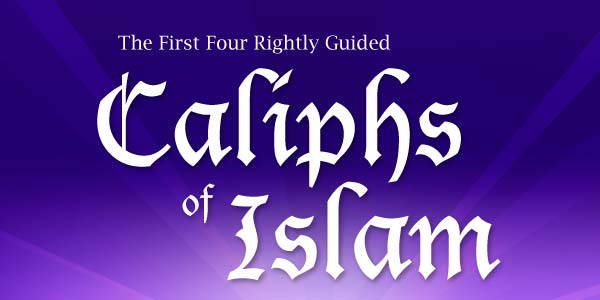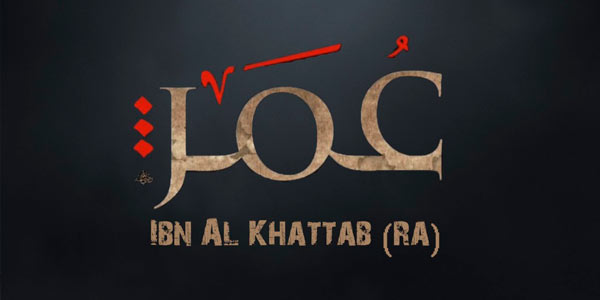The Second of the Four: Caliph `Umar b. al-Khattab (d. 23AH)

A biography that does justice to `Umar b. al-Khattab, the second Caliph of Islam, will need a volume of large size. Michael H Hart has placed him the 52nd in his list of 100 all-time great men of the human race. We believe that while Prophet Muhammad has to remain at the top of any list for his lasting moral and spiritual influence (as Michael Hart did), but `Umar deserves to be placed on top in a list of conquerors, rulers and administrators.
History has reported no equal of Umar b. al-Khattab. Most conquerors were poor rulers and administrators and hardly influenced the people or events after them.
There were four important aspects of `Umar’s life: his personal life, his military achievements, his administrative affairs and his religious opinions and influences. In this short article we shall deal with only the first aspect, in brief.
Early Life
He was born 13 years after the Prophet and lived 13 years longer than him. He was a man of extraordinary built appearing like a rider when standing in a crowd. Altogether he married eight women at different times, of whom the most prominent was Umm Kulthum, the daughter of `Ali ibn abiTalib, and had a total of 13 children of whom the best known are Hafsa and `Abdullah.
In his childhood, his father had set him upon shepherding and collection of wood not for himself alone but for his sisters too. He treated him harshly and beat him. His aunts rewarded him with a handful of dates or raisins for looking after their animals. As he grew up, he went into business and soon became a successful one. He showed his intelligence early when he was chosen to judge between disputing persons in Makkah. Sometimes he represented the Quraysh as their diplomat.
He was originally staunchly opposed to the Prophet. Disturbed by his slave-girl embracing Islam, he beat her furiously, ending with words, “I am not ceasing because of mercy, but because I am tired.”
He saw a woman of his clan preparing for journey to seek refuge in Abyssinia. He asked her in a thin, remorseful voice, “Are you leaving?” She said, “Yes, O son of Khattab. You people have made our lives unlivable.” That was the first time she noticed grief in his voice and mentioned to someone who remarked that `Umar’s donkey was closer to embracing Islam than he himself. But, aided by his grief, and by the Prophet’s supplication for him, it wasn’t too long before he embraced Islam. That was the 7th year of the Prophet’s mission. Another strong man of Makkah, Hamza, an uncle of the Prophet, also happened to embrace Islam those days. Upon `Umar’s and his insistence, the Prophet and his men arrived at the Grand Mosque to Pray openly before the pagans. They ground their teeth in anger, but there was little doing with `Umar and Hamza among them. It is said that the Prophet named him Farooq that day, because he distinguished between Islam and kufrdom.
He was the only one who emigrated to Madinah openly having announced his intention. At Madinah, `Umar was only the third of the three with the Prophet and Abu Bakr. When not with the Prophet, the two were always together so that the people would say, “Abu Bakr and `Umar came,” “Abu Bakr and `Umar went.”
When his daughter Hafsa became a widow, he offered her to `Uthman who refused, then to Abu Bakr who refused too. Finally, the Prophet offered to marry her and he knew why the two had refused.

Commitment to Islam
`Umar’s commitment to Islam was deeper than the deepest. His thought currents ran in harmony with the Revelation. Several times his sentiments echoed those of the revelation before they would come. His suggestions to the Prophet at various times that the face-veil be made mandatory, that he should take the Station of Ibrahim as a place for prayers, that he should not conduct the funeral-prayer of a known hypocrite, that the Badr prisoners – the warmongers who had been at the forefront of opposition to Islam – should all be executed … each case occasioned the coming down of Revelation in agreement with his suggestions. He also suggested that the pronouncement about he who said, ‘There is no deity save Allah, and Muhammad is his Messenger,’ should be kept back from the people, else they would sit back without striving, was also accepted by the Prophet. Perhaps he felt that the common people should learn such things much later, after a good grounding into Islam, otherwise they would fall into complacency. An erroneous understanding of the Hadith, which `Umar feared, has done damage to this Ummah through the centuries.
The Prophet dreamt that he drank so much milk that it appeared in his fingernails, then he gave the cup to `Umar; and interpreted that it was knowledge. He told him that when he walked through a cleft, Shaytan sneaked out into another. He said, “There were people among the previous nations who were spoken to (from on High). Had there been any in his Ummah, it would have been `Umar.” He said he saw a woman in the courtyard of a castle in Paradise making ablution and on inquiry was told that the castle belonged to `Umar. He added, “If not for `Umar’s jealousy, I would have entered.” When `Umar learnt, he wept and said, “Jealous of you?”
Nonetheless, a Prophet is a Prophet and a Farooq could never reach the wisdom of one. At Hudaybiyyah he was completely opposed to the peace treaty, but as he saw, a year’s peace between the Muslims and pagans brought in more people into the fold of Islam than during the confrontational previous 20 years. But if `Umar was lacking somewhere, he knew he had to make up with expiation works. He kept fasting and expending in charity throughout his life in expiation of his protests that day.
He had the strength of character and realization of the need of disciplining the inner self that once he ascended the pulpit during his caliphate for no other reasons but to announce his origin. He said, ‘People, I used to be shepherding animals of my father and aunts, and my father used to beat me (for doing it poorly).” Having said that, addressing a mosque-full of worshippers, he came down. When someone asked him why he had to belittle himself, he said, that’s what he had intended.
On the other hand, it was his foresight about the dawn of a new age that although he had suggested that the prisoners of Badr battle should be executed, when the Prophet decided against it and suggested that one of the ways of ransom for the prisoners was to teach 10 Muslims the art of reading and writing, `Umar registered himself with Harb b. Umayyah (father of Abu Sufyan) to acquire the art. Although fresh out of Jahiliyyah, he had guessed the place of knowledge in the scheme of things and so, on the one hand memorized the Qur’an, while on the other spent a whole day with the Prophet, every alternate day, having made an arrangement of exchange of knowledge with an Ansari attending the next day.
That the Companions concealed much of their knowledge and spiritual finesse under the guise of outward simplicity, was a rule that governed `Umar’s behavior also. He is the only one whom the Prophet requested to pray for him when he expressed his intention to leave for Makkah intending an `Umrah. His naming of the Prophet’s uncle `Abbas as means of access (waseelah) during prayers for rain, and the prediction, that with `Abbas’ death, calamities will burst out came true. He had an eagle eye for talent. When the Prophet recited a verse ending with, “Or, are there on the hearts their locks?” a young Yemeni boy sitting there remarked, “Of course there are locks on the hearts and it is Allah Himself, the Exalted, who locks or unlocks them.” He remained in `Umar’s memory until when he assumed caliphate, he used him for governmental services. He was granted kashf, and was able to guide Sariyyahfar away leading forces against Persians and Kurds, telling him to fight with the mountain behind him, calling out during his Friday Sermon: “O Sariyyah, the mountain.” Sariyyah reported that he heard `Umar’s instruction and acted accordingly.
It was `Umar’s extreme dedication to the Prophet and the feeling that life was incomplete without him that led him to believe that he couldn’t die. He began to say after his death that he is not dead but rather has gone into solitude like Musa had spent 40 days in solitude on Mount Tur. He expected the Prophet to return and was so sure that he threatened to cut off the hands and tongues of hypocrites who say that he is dead.
It was Abu Bakr who drove the truth into his unbelieving soul. He uncovered the Prophet’s face, kissed it, and then went into the mosque where people were between denial and acceptance. `Umar was hotly contesting with those who thought that the Prophet was dead. Abu Bakr told him to sit down but `Umar refused. So he climbed the pulpit and the people forgot `Umar. Abu Bakr said, “Whoever of you worshipped Muhammad may know that Muhammad is dead. But whoever worshipped Allah may know that Allah is the Living one. He does not die.” Then he recited (3: 144), “Muhammad is no more than a Messenger. Other Messengers have been before him. Then if he died, or is killed, will you turn on your heels? And whosoever turned on his heels, will do no harm to Allah; and surely, Allah will reward the grateful.” With the verse dawning upon him as if he had not known it earlier, `Umar’s feet gave in and he collapsed.
(To be continued)

